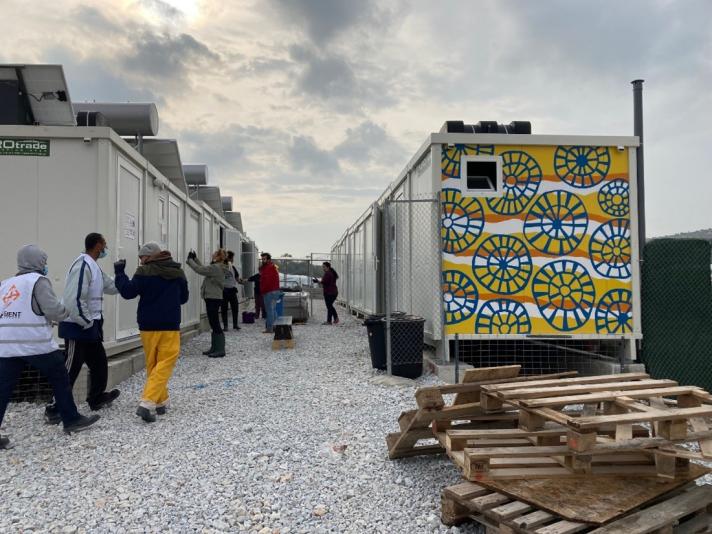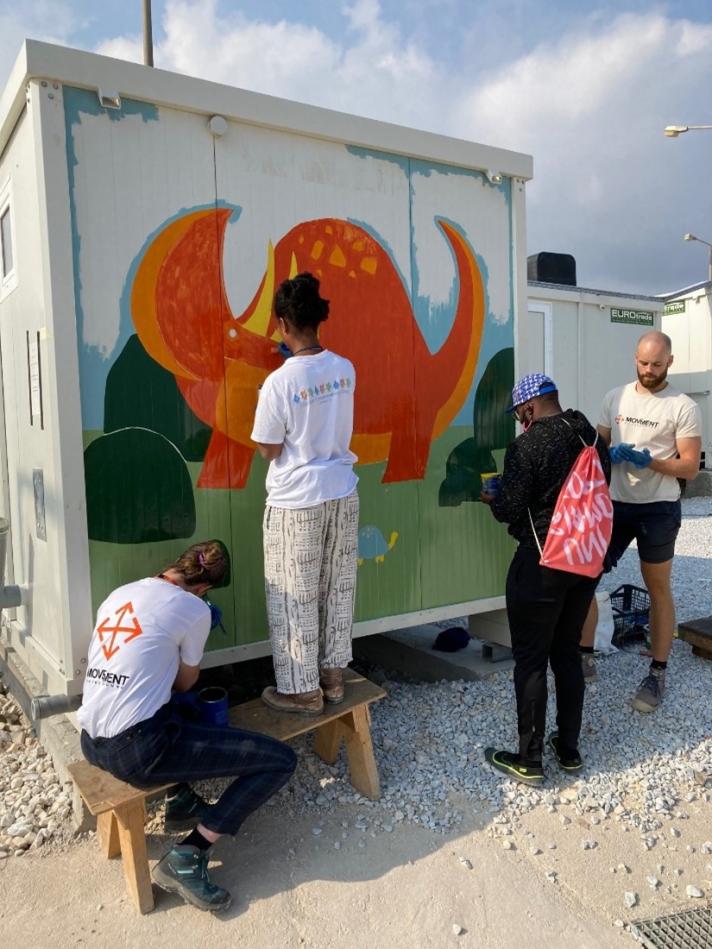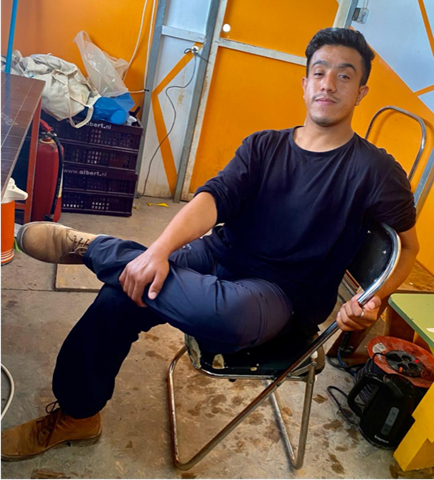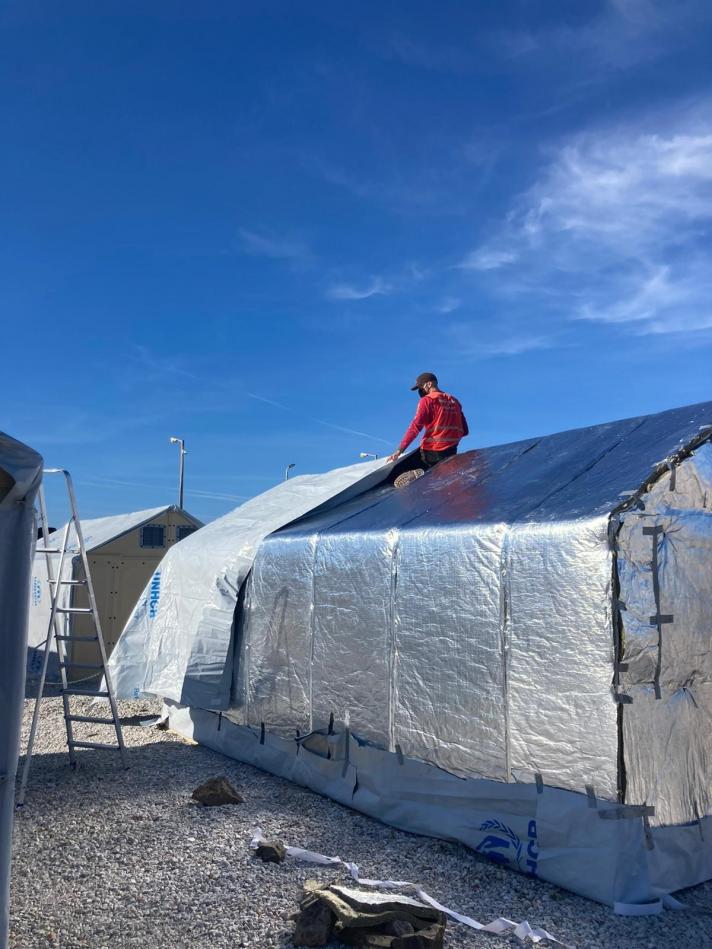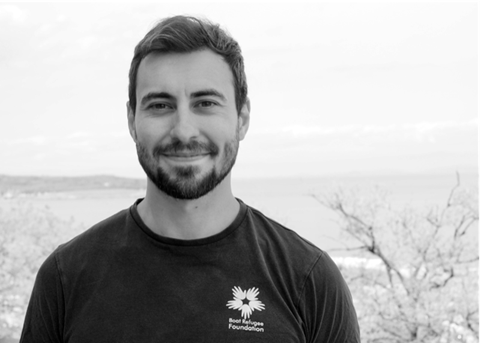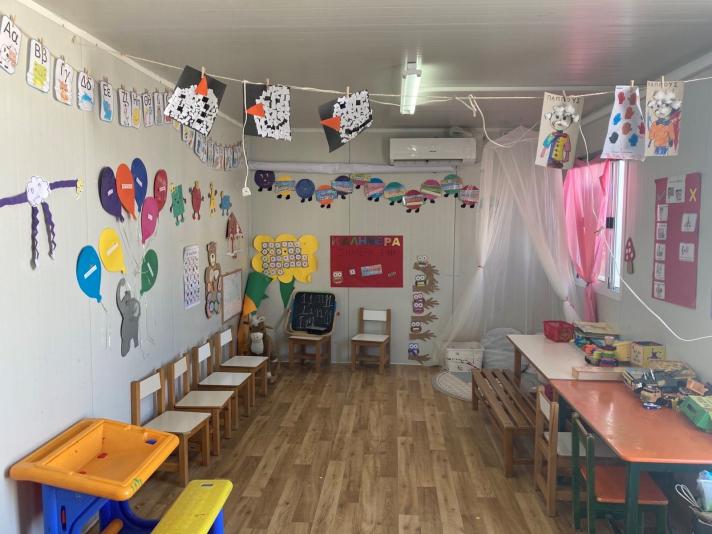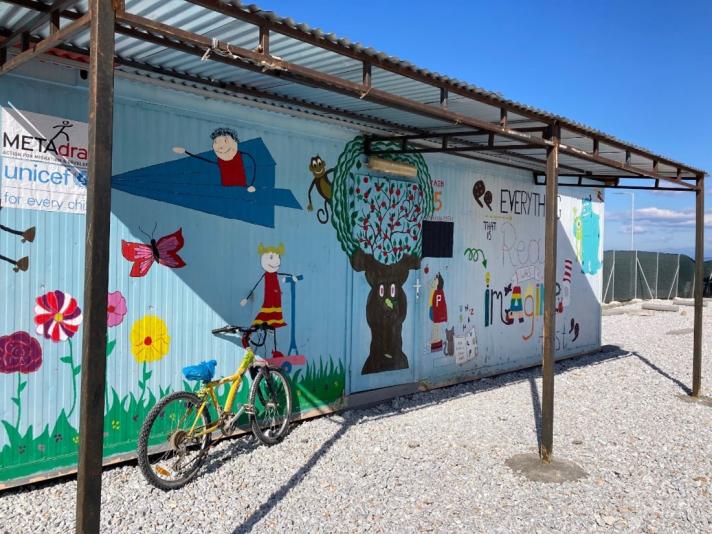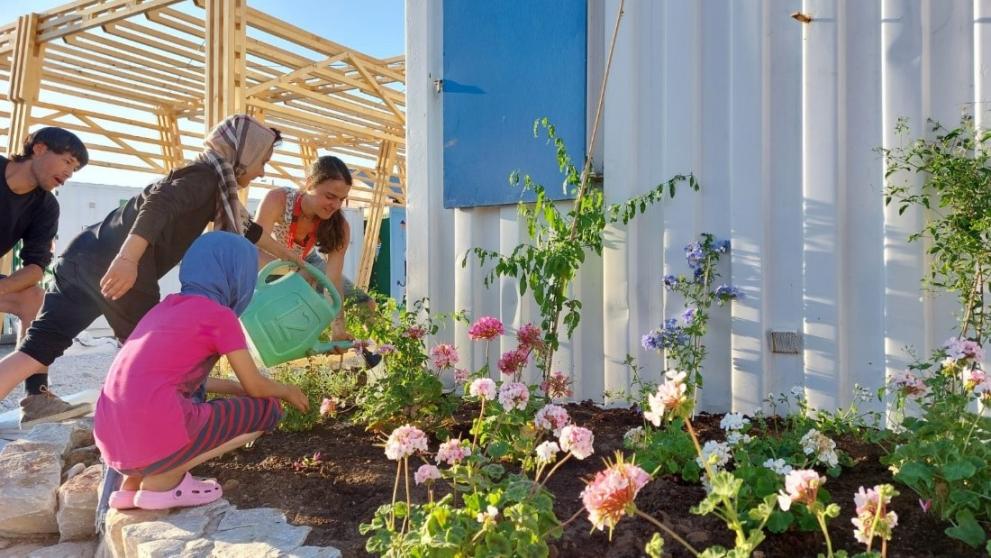
Two years ago, when fires destroyed the camp in Moria, Europe responded rapidly as countries sent aid to help the host community on Lesvos. The European Commission funded transfers of asylum seekers to the mainland. Those who stayed, and those who arrived on Lesvos after the fire, have been accommodated in a new temporary centre in Mavrovouni run by the Greek Ministry of Migration.
New facilities and winterised housing significantly improved the centre, which was initially set-up as an emergency solution, due to fires destroying the previous camp in Moria. Today, following gradual improvements of facilities the Mavrovouni temporary centre has become a welcoming space for asylum seekers.
At the same time, works continue on a new reception centre on Lesvos island. The European Commission’s Task Force Migration Management is closely working with Greek authorities on policy, infrastructure improvements and providing financial support.
The WASH project in action
Although the centre in Mavrovouni was created overnight, today it has all the necessary facilities and provides services to its residents for a humane and decent living environment.
Thanks to project WASH, the centre has a new water and sewage network connected to the local grid since November 2021. The EU Commission fully funded the project with €9 million.
A real communal spirit is present in the small team of volunteers – residents who make sure WASH facilities are taken care of. Ahmad Shekib Abawi is their team leader:
Now, the toilet facilities are safer. There is hot water and separate areas for men and women. Also, at night, the facilities have lights. Soap and shampoo are always available.
The volunteers are also on alert for water leakages or similar issues, and answer questions from residents.
Winter preparations
Despite it being a temporary facility, the European Commission has stressed the need to ensure tents are replaced with winter-proof accommodation as soon as possible. This happened in December 2021, with the installation of refugee housing units insulated against the cold and with electric radiators provided. Residents live either in the housing units, or in container homes. People who belong to vulnerable groups - minors, families, people with disabilities, single women - are always accommodated in container homes with close access to the administration area.
Residential areas are spread across the middle of the centre’s space, while other facilities, such as medical care areas and the education hub, are available to camp residents on the sides of the centre by the beach.
A fully fledged medical area: from doctors and a pharmacy to the COVID-19 quarantine area
Medical care is always available to residents. The day shift is covered by a doctor from the Greek national health care system, afterwards NGOs take care of urgent cases. If a person needs more complex or emergency care, then an ambulance is called.
A pharmacy on-site is managed by an NGO. Even if a person receives a negative asylum decision, and is thus not entitled to medical care, the pharmacy can provide them with necessary medication without charge. More chemists are also available not far from the location.
Since it opened, a part of the centre serves as the COVID-19 quarantine area. Currently, people who arrive at the temporary centre have to quarantine for five days. COVID-19 tests are processed directly in the centre, as on-site laboratories have the necessary testing equipment. As soon as a person leaves the quarantine area, they can apply for asylum at the centre’s Registration office.
Many people residing at the temporary centre escaped war, political or domestic violence, sometimes even slavery. Those in need of mental health care have access to on-site psychologists. In September 2022, staff working in the centre, will receive training from the NGO Boat Refugee Foundation how to work with and better support residents with mental health issues:
Truly understanding mental health in forced displacement settings, means understanding that it is not about culture. It’s about normal human responses to inconceivably high amounts of stress and exposure to violence. In this training, we closely examine the different stressors that are associated with forced displacement, explain the psychosocial symptoms that result from it and explore ways to constructively interact with persons in distress.
New education hub for children
Whether a child has refugee status or not, all children in the temporary centre in Mavrovouni have access to formal and informal education. Around eighty percent of all children in the centre, that is – those whose parents have given consent, go to the local school in Mavrovouni by organised bus transport.
In January 2022, several small classrooms buildings were set up for informal education. In the “education hub” children attend English, Greek, science, math and other classes. The hub is especially convenient for parents with pre-school children; children play together and form friendships, while at the same time, they can already learn before enrolling into formal education.
The new reception centre on Lesvos is being funded by the EU as part of a grant agreement for €155 million to the Greek government to construct the reception centres on Lesvos and on Chios. Works already started in January 2022.
Details
- Publication date
- 9 September 2022
- Author
- Directorate-General for Migration and Home Affairs

